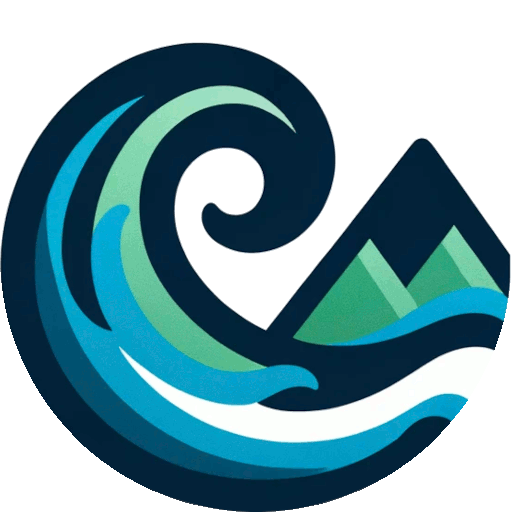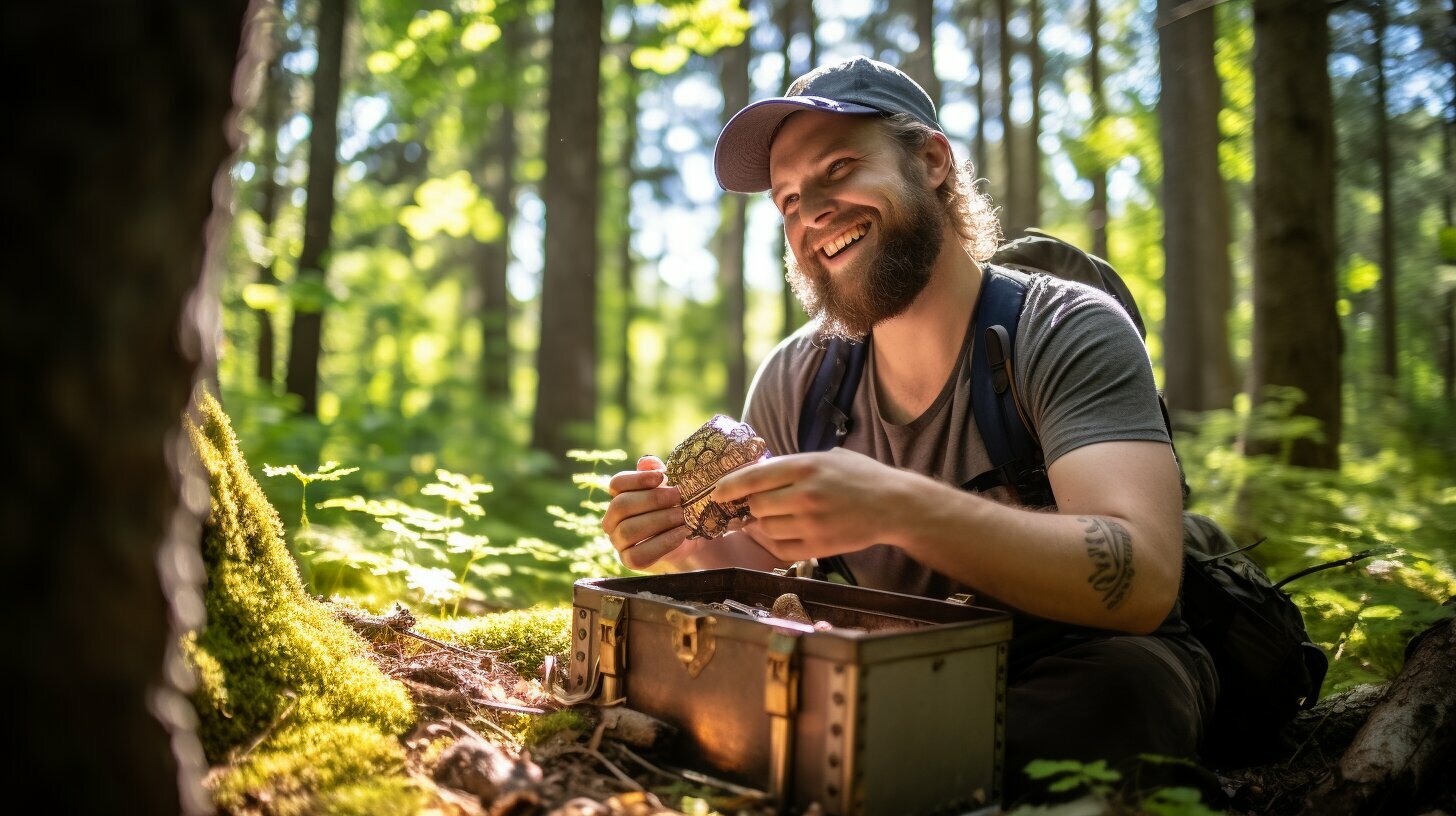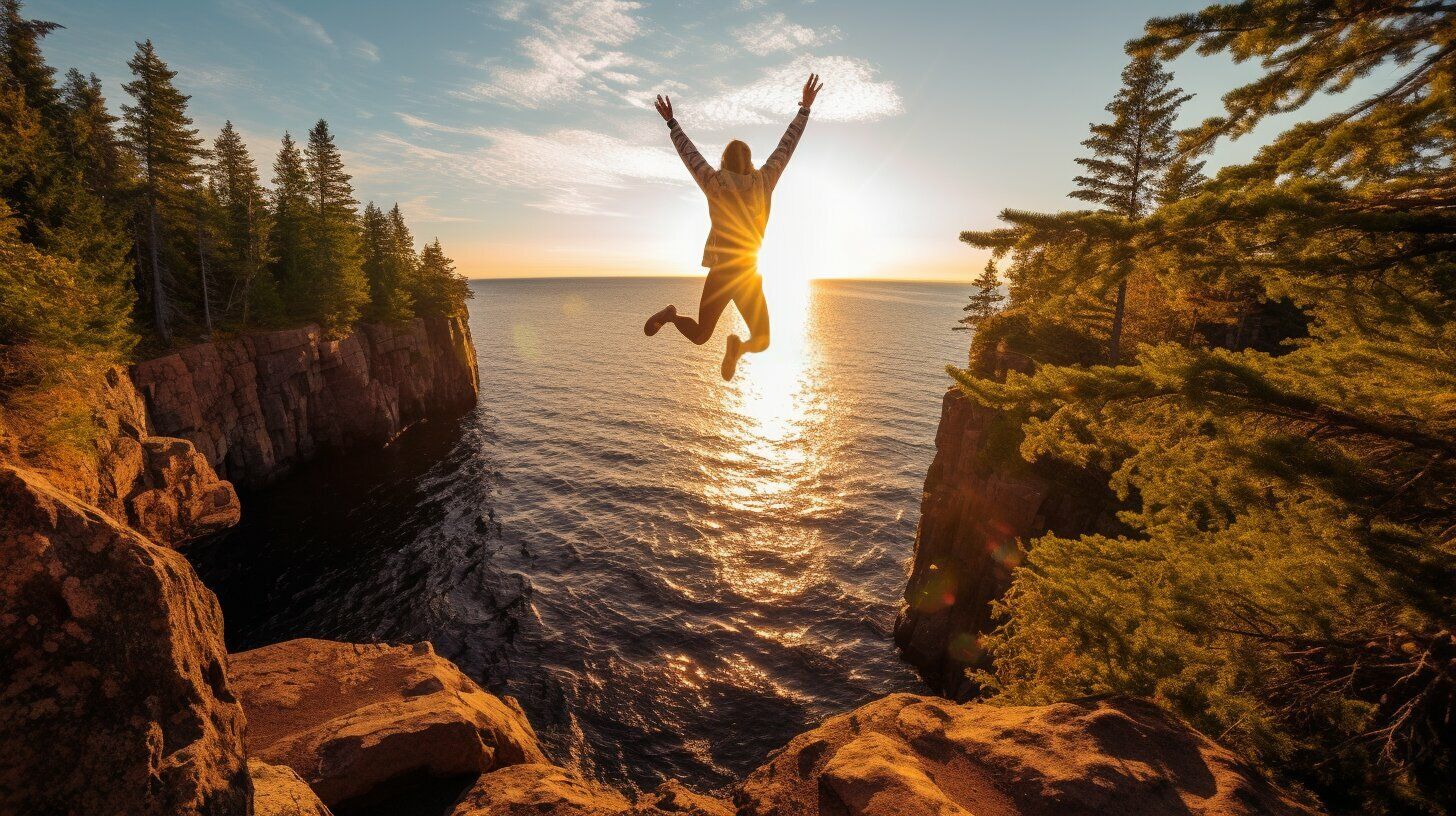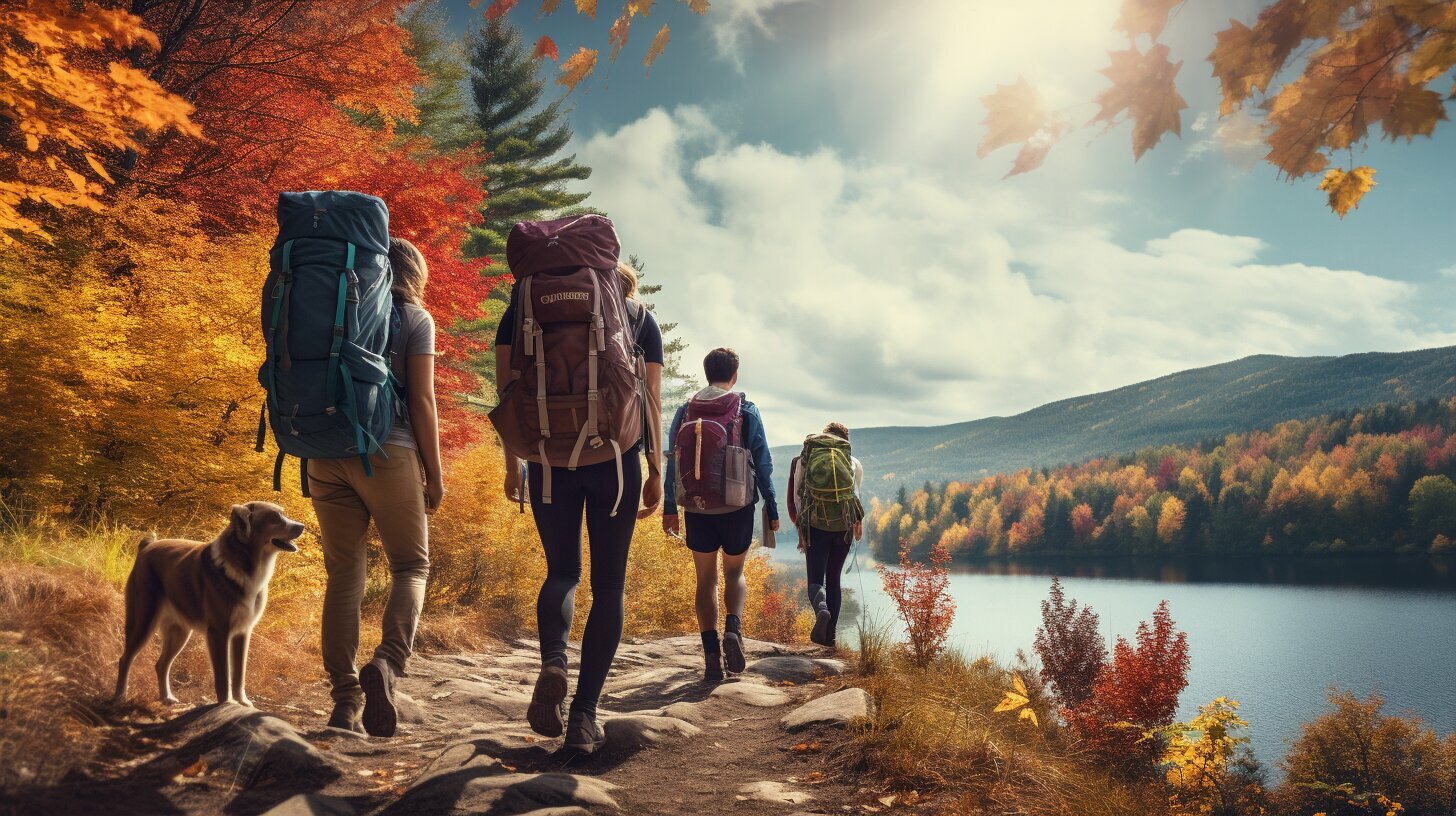Are you looking for a new and exciting outdoor activity? Look no further than geocaching! Geocaching is a worldwide treasure hunt that uses GPS coordinates to locate hidden containers or “caches.” It’s a fun and interactive way to explore the outdoors, discover new places and connect with a global community of treasure hunters.
In this beginner’s guide to geocaching, we’ll cover the basics of geocaching and provide tips and tricks for success. By the end of this guide, you’ll be ready to embark on your own geocaching adventure!
Key Takeaways
- Geocaching is a worldwide treasure hunt that uses GPS coordinates to locate hidden containers or “caches.”
- Geocaching is a fun and interactive way to explore the outdoors, discover new places, and connect with a global community of treasure hunters.
- This guide will cover the basics of geocaching and provide tips and tricks for success.
- By the end of this guide, you’ll be ready to embark on your own geocaching adventure!
What is Geocaching?
Geocaching is an outdoor activity that combines the use of a GPS device or smartphone app with the challenge of a treasure hunt. In geocaching, participants, known as geocachers or treasure hunters, search for hidden containers called geocaches using the coordinates provided by the cache owner. Geocaches can be found all over the world, from cities to natural environments, and range in size from tiny containers to large ammo cans.
Geocaching is a fun and exciting way to explore the outdoors and discover new places. It can be enjoyed by people of all ages and abilities and is a great way to stay active and connect with nature. The activity also fosters problem-solving skills, improves navigation and observation skills, and allows for the satisfaction of finding and signing logbooks within caches.
Disclosure: When you buy through links on our site, we may earn an affiliate commission.
If you’re new to geocaching, it’s helpful to understand the basics of the activity. Geocaching 101 involves knowing what you’re looking for, how to use GPS coordinates, and what equipment and tools you need to get started.
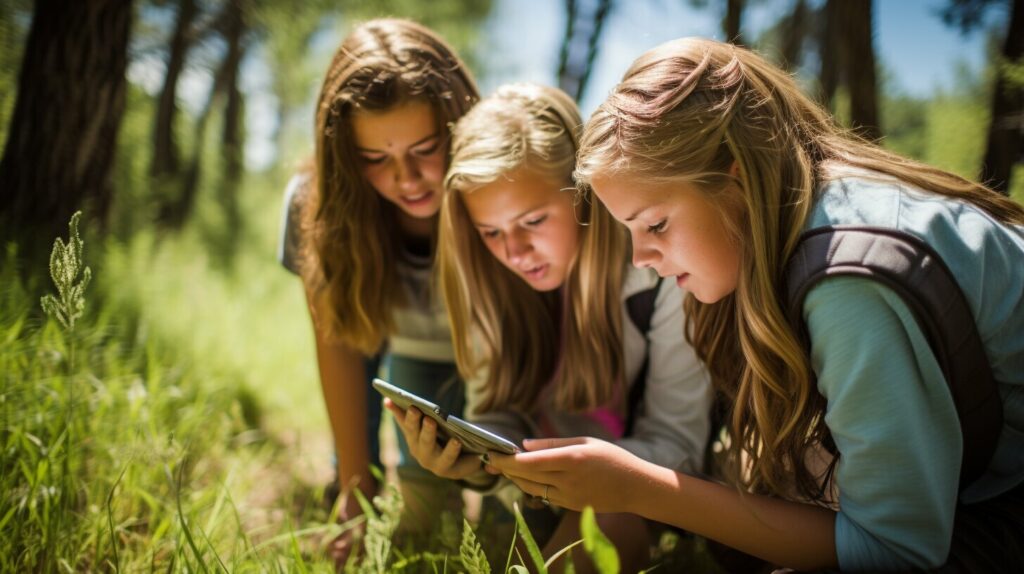
Geocaching is a popular activity around the world, with over 3 million active geocachers and 2.8 million active caches worldwide. The activity has a strong online community that shares information, tips, and stories about their geocaching adventures.
Getting Started with Geocaching
If you’re ready to embark on your geocaching journey, the first step is creating a geocaching account. Head on over to the official geocaching website, and hit the “Sign Up” button to create an account. Once that’s done, you’re ready to start looking for caches near you!
Pro Tip: Before heading out to find your first cache, make sure to download a geocaching app or use a GPS device to help you navigate to the cache’s location. There are several great apps available for both iOS and Android devices, as well as plenty of GPS devices designed specifically for geocaching.
Now that you have your account set up and your navigation tools in hand, it’s time to start searching for caches. The best way to start is by looking for caches near your current location. Use the search function on your geocaching app or device to find nearby caches, and start exploring!
Pro Tip: As a beginner, it’s recommended to start with caches that have a difficulty rating of 1 or 2, and a terrain rating of 1 or 2. These types of caches are typically easier to find and require less physical exertion, making them a great starting point for beginners.
As you begin your search, keep an eye out for clues and hints that might help you locate the cache. Many caches have descriptions and photos that can give you a better idea of what you’re looking for, and some caches even have puzzles or riddles that must be solved before the cache can be found.
Pro Tip: Don’t forget to bring along some swag to trade with the items you find in the cache. Swag can be anything from small toys to keychains to trinkets you’ve collected over the years – just make sure to leave something of equal or greater value behind in the cache.
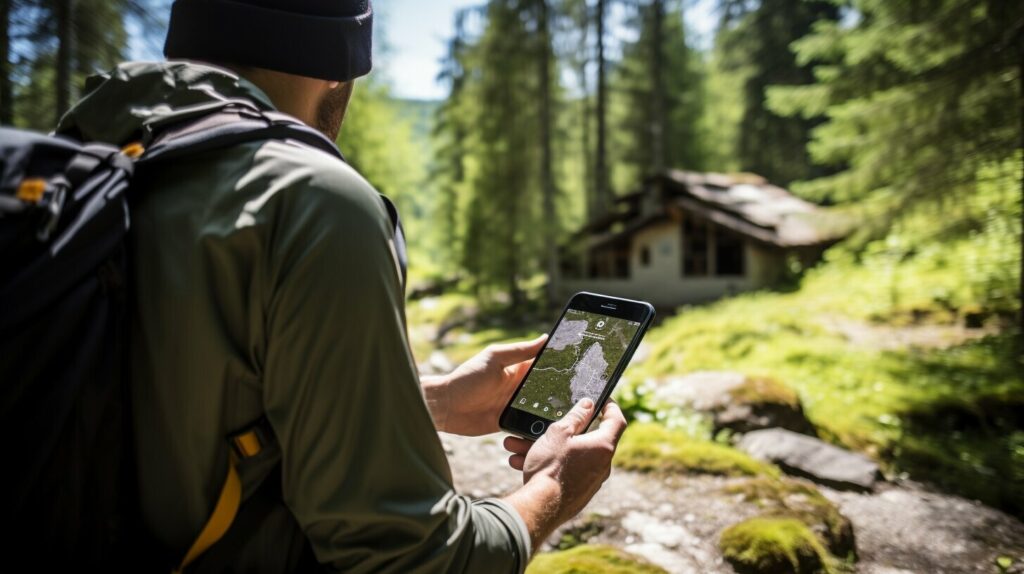
By following these tips, you should be well on your way to becoming a geocaching pro in no time. Just remember to always be respectful of nature, follow proper safety guidelines, and have fun!
Finding Your First Geocache
If you’re ready to start your geocaching adventure, finding your first geocache is the perfect place to start. Follow these steps to get started:
- Create a free geocaching account to access the locations of hidden caches.
- Choose a cache that is labeled as “beginner-friendly”
- Use your geocaching app or device to navigate to the cache location.
- Once you’re within a few feet of the cache location, start searching for the hidden container. Look for anything that seems out of place or not natural to the surroundings, and don’t be afraid to move things around (carefully!) to get a better look.
- Read the cache description and any hints to help you find the cache.
- Be patient and persistent! Finding a cache may take some time, but the feeling of satisfaction when you finally locate it is worth it.
Remember that it’s okay to ask for help if you’re having difficulty finding a cache. The geocaching community is friendly and supportive, and many experienced geocachers are happy to offer tips and advice.
To give you an idea of what you’re looking for, here is an example of a typical geocache container:
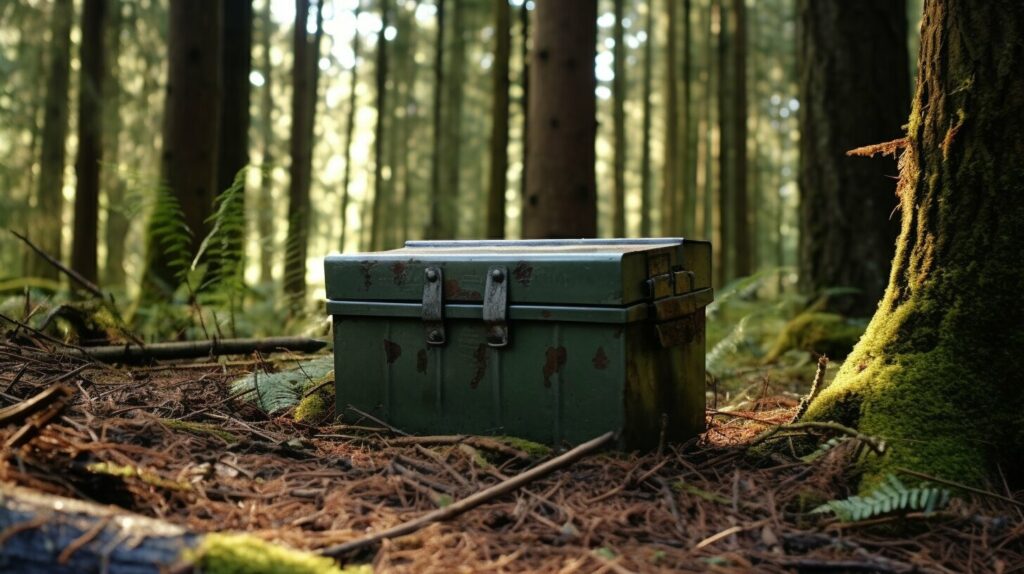
Now that you know how to find your first cache, it’s time to get out there and start exploring!
Types of Geocaches
There are various types of geocaches that you can discover as a beginner. Understanding the different types will help you choose which ones to search for and make your geocaching experience more enjoyable.
Traditional cache: This is the original type of geocache, and it involves finding a physical container that contains a logbook. This type of cache can be any size, ranging from small pill bottles to large ammo cans, and can be hidden in various locations such as parks, forests, or urban areas.
Multi-cache: This type of cache consists of two or more locations, each with its own set of coordinates that lead to the next location. The final location contains the physical cache and logbook.
Puzzle cache: This type of cache requires you to solve a puzzle before you can obtain the final coordinates and locate the cache. The puzzle can vary in difficulty, from simple riddles to complex ciphers.
Earth cache: This type of cache doesn’t have a physical container, but instead asks you to learn about geological features or processes at a specific location. Once you answer questions related to the location, you can log your find.
Virtual cache: This type of cache doesn’t have a physical container either, but requires you to visit a specific location and answer questions about it. Once you complete the task, you can log your find.
These are just a few of the many types of geocaches that you can find as a beginner. Each type offers a unique challenge and adventure. Remember to review the cache description and hints carefully before you start your search, as they will give you valuable clues to help you find the cache. With a little practice, you’ll become an expert geocacher in no time!
Geocaching Tips for Beginners
Geocaching is a fun and exciting activity, but it’s important to follow proper etiquette and safety practices to ensure everyone has a positive experience. Here are some tips for geocaching success:
- Respect nature: Always stay on designated trails and avoid disturbing wildlife or plants.
- Be discreet: While searching for a geocache, be mindful of your surroundings and avoid drawing unnecessary attention to yourself.
- Stay safe: Always bring appropriate gear, such as water, snacks, and a first-aid kit, and inform someone of your geocaching plans.
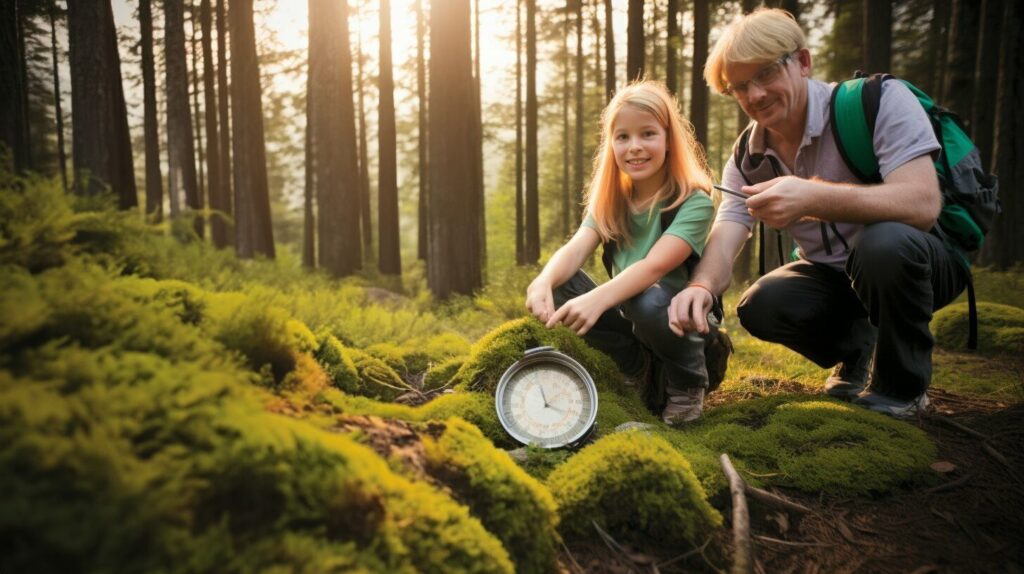
These are just a few examples of proper geocaching etiquette and safety practices. As you gain experience, you’ll discover even more ways to respect the environment and stay safe during your geocaching adventures.
Geocache Maintenance and Trackables
If you’ve found a geocache, it’s important to maintain it so that other geocachers can enjoy it too. As a beginner, you may not know what geocache maintenance involves or how it should be done. Here are some tips for geocache maintenance:
- Check the geocache container regularly to make sure it’s in good shape and not damaged.
- Replace the logbook if it’s full or damaged.
- Make sure the contents of the geocache are appropriate and not damaged. Remove any items that may not be suitable for all ages.
- Re-hide the geocache container in the same spot where you found it.
In addition to maintaining geocaches, it’s also important to know about trackables. Trackables are items that move from geocache to geocache and can be tracked using a unique code. If you find a trackable, you can either take it with you and place it in another geocache or leave it in the geocache for someone else to pick up. If you take a trackable, make sure to log it in your geocaching account and drop it off in another geocache soon.
Remember, geocache maintenance and trackables are important parts of the geocaching experience. By following these tips, you’ll help keep the game fun and enjoyable for everyone.
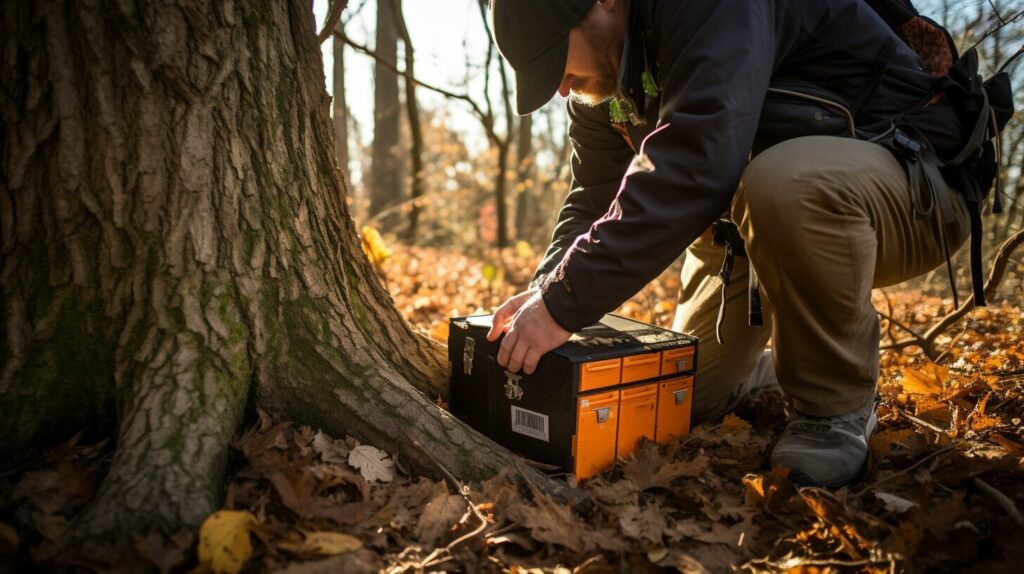
Geocaching with Challenges and Achievements
If you’re looking for more than just finding hidden caches, geocaching challenges and achievements are a great way to elevate your geocaching experience.
Geocaching challenges come in different forms and difficulty levels, from simple tasks to more complex ones that require you to visit multiple caches or solve puzzles. These challenges can be found on the official geocaching website or through third-party platforms.
As you complete these challenges, you earn badges and trackable items, which are essentially physical tags that can travel from cache to cache, allowing you to keep track of their journey. These badges and items can be displayed on your geocaching profile, showcasing your progress and accomplishments to the geocaching community.
Some of the most popular challenges and achievements for beginners include finding a cache in every difficulty and terrain rating, visiting caches in different countries, and discovering caches with a high number of favorite points.
Remember that the main goal of geocaching challenges and achievements is to have fun and motivate yourself to explore new places and caches. Enjoy the journey and don’t forget to share your experiences with other geocachers.
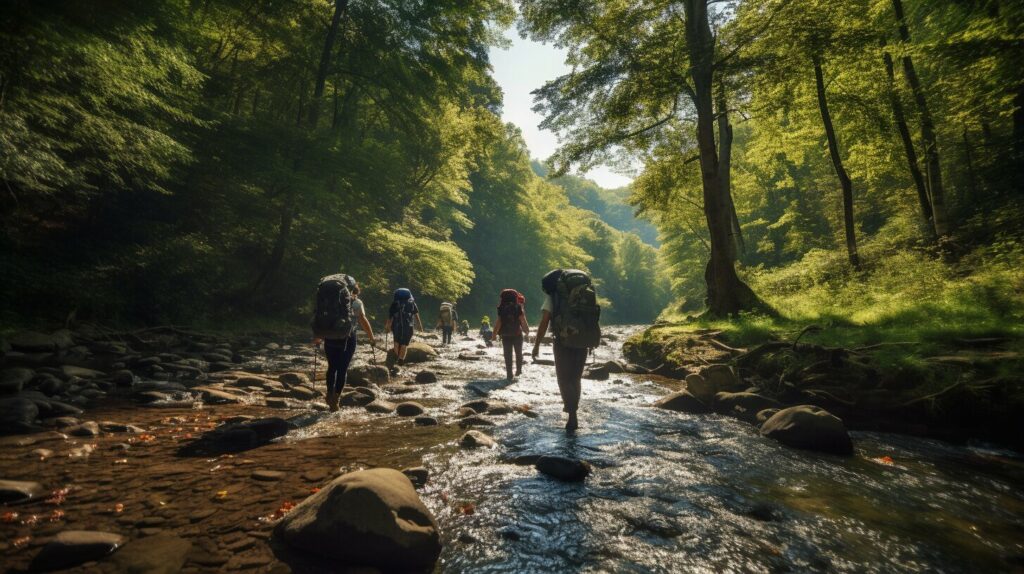
Keep in mind that geocaching challenges can be addictive and may require a considerable time commitment, so plan accordingly and set realistic goals. Whether you’re a casual or a seasoned geocacher, challenges and achievements can add an exciting dimension to your geocaching adventures.
Geocaching Community and Events
Joining the geocaching community is a great way to get more involved in this exciting activity. Connecting with other geocachers can lead to new friendships, partnerships, and even more exciting geocaching experiences.
Look for local events and meetups to attend. These events can be anything from casual gatherings to organized treasure hunts. They can give you a chance to meet other geocachers and learn from their experiences.
Online forums and social media groups are another way to connect with fellow enthusiasts. You can exchange tips and stories and get involved in discussions about geocaching.
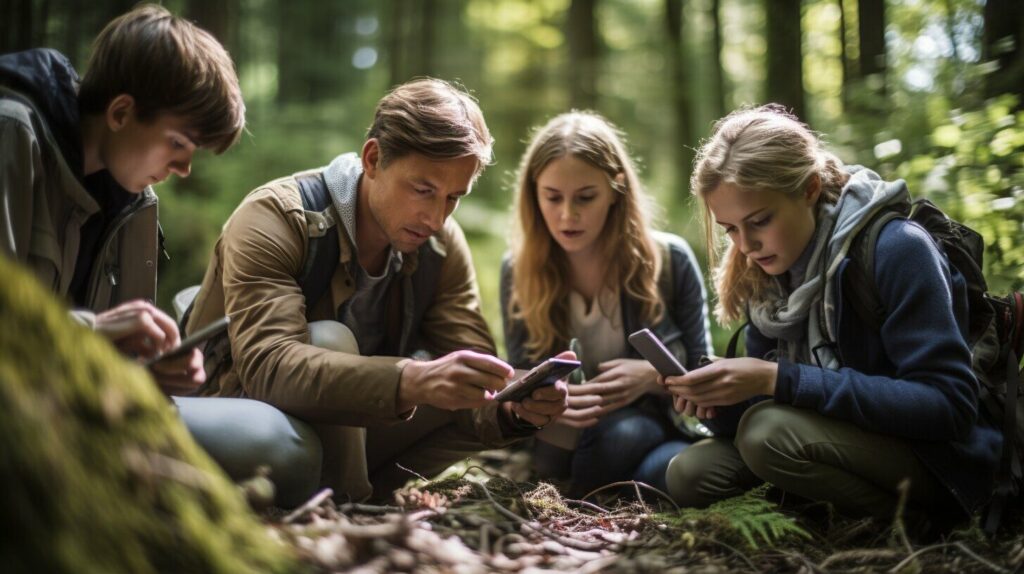
Remember to always be respectful and considerate of other geocachers and the environment. Follow the guidelines and rules of geocaching and always leave the location cleaner than you found it.
Get Involved in Geocaching Challenges
Geocaching challenges are a fun way to engage with the community and test your skills. They can range from finding a certain number of caches in a specific timeframe to completing challenges based on a theme.
Check out the challenges on the official geocaching website and see which ones interest you. You can also create your own challenges and invite others to participate.
Earning badges and completing milestone achievements can also be a fun way to track your progress and challenge yourself.
By becoming an active member of the geocaching community, you can not only improve your skills but also meet new people and make lasting memories.
Tips for Geocaching Success
As a beginner, there are a few tips and tricks you can use to enhance your geocaching experience:
- Plan ahead: Before heading out on your geocaching adventure, make sure to check the weather, bring necessary supplies, and plan your route.
- Read the cache description: The cache description is your guide to finding the geocache. Make sure to read it carefully and follow any instructions given.
- Use the hints: If you’re having trouble finding a cache, make sure to check the hint. It may provide additional clues or help you narrow down your search area.
- Bring a pen: Most geocaches require you to sign a logbook as proof of finding the cache. Make sure to bring a pen with you.
- Respect nature: Geocaching is a fun activity, but it’s important to respect the natural environment and leave no trace. Make sure to follow the posted rules and regulations.
- Connect with the community: Joining a geocaching community can provide you with valuable tips, insights, and support. Attend events and connect with other geocachers for an even more enjoyable experience.
With these tips, you’ll be well on your way to becoming a successful geocacher!
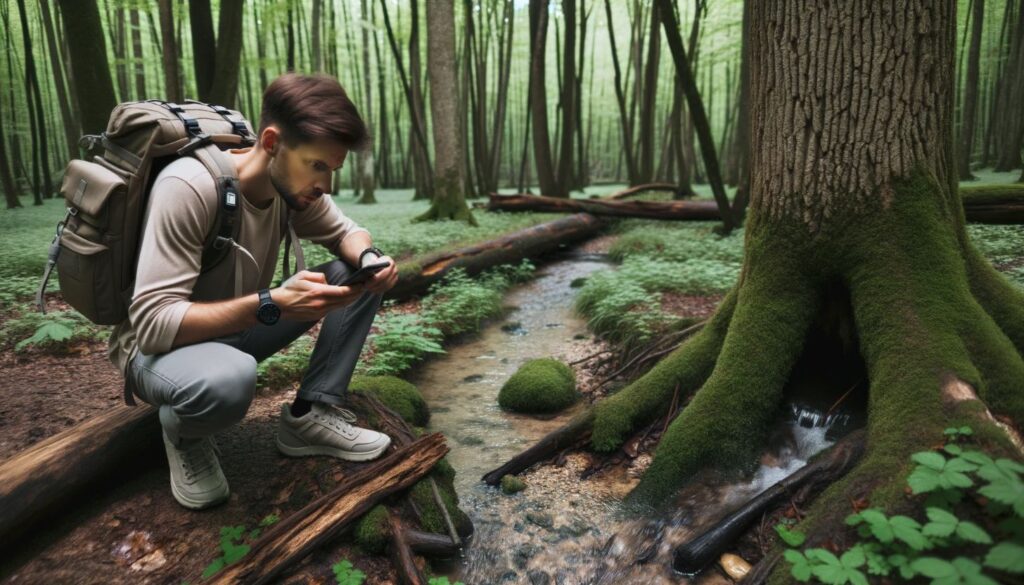
Conclusion
Geocaching is a fun and exciting outdoor activity that can be enjoyed by people of all ages and experience levels. By following this beginner’s guide to geocaching, you have learned the basics of geocaching, how to get started, finding your first geocache, different types of geocaches, geocaching etiquette and safety, and much more.
We hope this guide has inspired you to start your own geocaching journey and explore the great outdoors. Remember to always be respectful of nature and fellow geocachers, and to follow the guidelines of the geocaching community.
So what are you waiting for? Grab your GPS device or smartphone and start your geocaching adventure today!
FAQ
What is geocaching?
Geocaching is an outdoor treasure hunting game in which participants use GPS coordinates to locate hidden containers, called geocaches, all over the world. It is a fun and exciting activity that combines elements of outdoor exploration and technology.
How does geocaching work?
Geocaching works by using a GPS-enabled device, such as a smartphone or a dedicated GPS device, to navigate to the coordinates of a geocache. Once you are near the location, you search for the hidden container using clues provided in the geocache description. When you find the geocache, you can sign the logbook, trade items if the geocache is big enough, and share your experience online.
How do I start geocaching?
To start geocaching, you need to create a free account on a geocaching website or app, such as Geocaching.com. Once you have an account, you can search for geocaches near your location, choose one that interests you, and navigate to its coordinates using a GPS-enabled device. Follow the clues provided in the geocache description to find the hidden container.
How do I find my first geocache?
Finding your first geocache can be a thrilling experience. Start by selecting a geocache that is suitable for beginners, preferably one with a higher difficulty and terrain rating. Read the geocache description carefully and take note of any hints provided. Use your GPS-enabled device to navigate to the coordinates, and once you are near the location, search for the hidden container by following the clues and using your observational skills.
What types of geocaches are there?
There are various types of geocaches that you can discover. The most common type is the traditional geocache, which consists of a container hidden at the given coordinates. Other types include multi-caches, where you have to find multiple stages to reach the final container, and puzzle caches, which require you to solve puzzles or answer questions to reveal the coordinates of the geocache. There are also virtual caches, event caches, and more, each with its own unique twist.
What are some geocaching etiquette and safety tips?
When geocaching, it’s important to follow some etiquette and safety guidelines. Respect nature and the environment by leaving no trace and being mindful of wildlife and sensitive areas. Be discreet while searching for geocaches to avoid attracting unnecessary attention. Always bring appropriate gear and be aware of your surroundings to ensure your safety during your geocaching adventures.
What is geocache maintenance and what are trackables?
Geocache maintenance refers to the regular upkeep of a geocache to ensure its container is intact, the logbook is available for signing, and any items inside are in good condition. Trackables are items that travel from geocache to geocache, often with a goal or mission. They can be trackable coins, tags, or other items. If you find a trackable in a geocache, you can log its discovery online and help it progress towards its goal.
Are there any geocaching challenges or achievements?
Yes, there are geocaching challenges and achievements that you can pursue. Challenges can be specific goals set by geocaching organizations, such as finding a certain number of geocaches within a time frame. Achievements, on the other hand, are milestones reached during your geocaching journey, such as finding a certain number of geocaches, attending events, or earning badges. These challenges and achievements add an extra layer of motivation and excitement to the geocaching experience.
Is there a geocaching community and events?
Absolutely! Geocaching has a vibrant and welcoming community of geocachers from all around the world. You can connect with fellow geocachers online through forums and social media groups, and even attend geocaching events where you can meet others who share your passion. Events range from small meetups to large gatherings, and they provide an opportunity to swap stories, trade trackables, and make new friends.
What are some tips for geocaching success?
To increase your chances of geocaching success, it’s helpful to plan your outings in advance by researching geocaches in the area and understanding their difficulty and terrain ratings. Improve your geocaching skills by practicing different search techniques and learning from experienced geocachers. Be prepared with essential geocaching tools such as a pen, extra batteries, and outdoor gear suitable for the conditions. Lastly, don’t be discouraged by challenges or failed searches – perseverance and a sense of adventure will go a long way.
